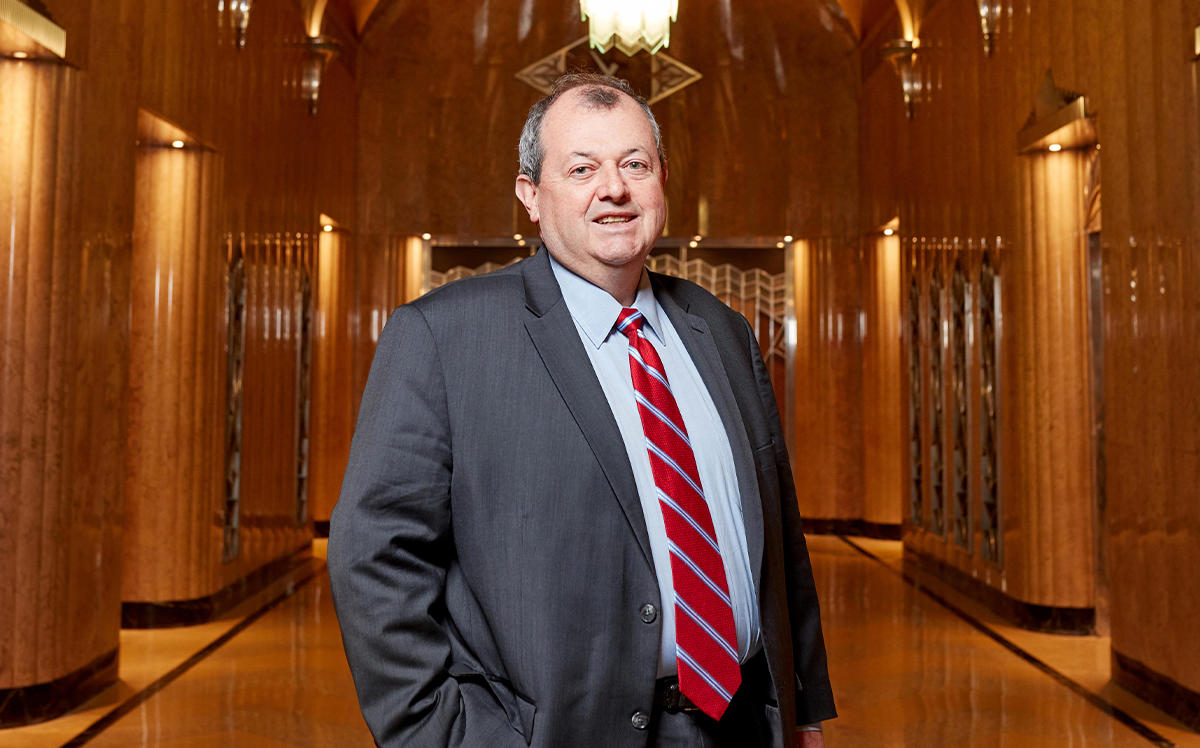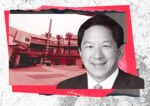Trending
REBNY’s James Whelan: “We have to do things differently”
The Real Deal sits down with the trade group’s new president

For nearly a decade James Whelan worked behind the scenes as the Real Estate Board of New York’s government strategist, carving out a reputation as a savvy operative who kept his name out of the media. But in July he took over as the face of the organization, succeeding John Banks as president.
Before joining REBNY in 2010, Whelan was an executive at Muss Development and served as Deputy Mayor Dan Doctoroff’s chief of staff during the Bloomberg administration. He took the helm at REBNY following an overhaul of the state’s rent stabilization law that passed despite strenuous objections from his organization. The outcome stunned and dismayed the real estate industry and prompted calls for REBNY to change its approach.
The Real Deal recently sat down with Whelan to discuss his career and his plans for the organization.
Where’d you grow up?
I’m the son of Irish immigrants. I was born and raised in Queens.
Were either of your parents involved in real estate/economic development?
Not at all. They didn’t have a clue or an understanding of what I did for a living. My father was a registered nurse in urology. He came to this country in ’55. He wanted to go work for Rusk Institute, which is one of the premier health facilities for the treatment of paraplegics and quadriplegics, and he did that for 35 years and absolutely loved his job. And he was very involved in Irish music and culture. And so was my mom. And my mom, she varied from being a housewife to working in Gimbels. She raised four kids in Elmhurst.
Where do you fall in age order?
I’m the third out of four. I have three sisters.
The brokerage community is important constituency, and it’s one, if organized, that can be a very effective voice and we’ve seen that over the last year
How’d you get your start in real estate?
I went to New York University undergrad, and I was in a program, out of college, called the Urban Fellows Program, which still exists. Bill de Blasio was an Urban Fellow. So was MaryAnne Gilmartin; she was two years after me. The program was a full-time internship in city government for a period of eight months. So the job I did there was for three years, then I went to law school. And when I got out of law school, I worked for a Wall Street law firm for about two and a half years. Rob Walsh, who was Small Business Services commissioner under Mayor Bloomberg, had run the Urban Fellows program, and I was the last class that he picked. Beam forward, 10 years later, he recruited me to be his number two at Union Square Partnership.
What was that like?
When I was Rob’s number two, I was somewhat the bad guy. I was the one who had to do all the public fights with organizations. There was a lot of fighting about Union Square Park and closing off Union Square West. I took over and sort of realized that with these community groups, we’re spending all our time on the things we didn’t agree on, why don’t we focus on the 90 percent of things we do agree on? What resulted was the start of the holiday markets in the parks … and the expansion of Union Square Park.
What are the major changes you are looking to make at REBNY?
We’re going to be devoting a lot more resources internally to advocacy and government affairs. Reggie Thomas, who was brought on to deal with our relations with the City Council, has really been the lead figure in spearheading our efforts to get the brokerage community more involved. Reggie is going to be heading up and overseeing city, state and federal affairs, and we’re going to build an internal team around him.
What are your thoughts on those who say REBNY wasn’t ready for the rent law fight, that it needs to change its strategy?
There’s an acknowledgement that we have to do things differently. We understand that we need to change and adapt, and that will be an ongoing process. Moving forward, we need to build stronger relationships with a wider array of elected officials. And it’s more than relationships. Those substantive conversations have to be based on data and good public policy, and not simply what’s in the best interest of the industry.
There are certain issues out there where you can’t dismiss emotion. Rent is a good example.
You’ve said REBNY needs to get better at telling the story of real estate’s importance to the economic health of the city. But some elected officials might not be receptive to that message coming from REBNY.
It’s a matter of both internal and external coalition building. The brokerage community is a very important constituency, and it’s one, if organized, that can be a very effective voice and we’ve seen that over the last year. The most recent example was the City Council legislation about capping rental broker fees where well over a thousand brokers showed up at a hearing in June. When it comes to public policy issues, it’s important to demonstrate that there’s a motivated constituency. It’s an issue of external coalitions and working with different groups. We’re working with a bunch of different groups, including the Building and Construction Trades Council and the [New York] Building Congress. But building those coalitions — and doing it quietly — increasingly needs to be part of our modus operandi.
REBNY recently announced a partnership with the Building and Construction Trades Council. What about the issue of prevailing wage? The two groups have always been at odds over whether it should be expanded.
Prevailing wage is still an issue, and it’s an issue we’re still talking about and trying to figure out because the problem is not ideology. We are a pro-union organization. It’s the math, right? What’s embodied in that agreement is a commitment to make sure that we focus on the 90 percent of the things that we have in common because when you think about the political environment we are in, what it means from a policy perspective is that there are a number of things that are discouraging investment, discouraging growth. There’s legislation in the City Council about after-hour variances, and our point on this is, “Hey, that’s very broad and sweeping legislation that would dramatically alter the way that’s handled.” What’s striking is there’s data available that we should all be looking at to see where adjustments need to be made. But to come along with broad and sweeping legislation seems more based on emotion than reason or data.
Is that what you feel happened with the rent law as well?
There are certain issues out there where you can’t dismiss emotion. Rent is a good example. Despite the way it’s characterized sometimes, we’ve had countless conversations with elected officials, quiet conversations. We need to appreciate that it’s one of the most frequent issues they hear from their constituents. It would be irresponsible of us to just dismiss that out of hand. It’s an important issue that they were elected to address. With that said, we think that the solution that came up in June was a poor solution. We don’t think it addresses the affordable housing crisis. It’s not going to make it any easier for the families and individuals to pay the rent, and it’s not going to create new affordable housing, right? That’s where data and reason need to come more into the conversation.
What are your thoughts on Michael Bloomberg running for president?
I think there are a lot of people out there who think it was a great mayoralty, and it’s going to stand the test of time, and what we need on the national level is less partisanship and more of a focus on getting results for everyday Americas. And I think there’s a feeling that if you look at his mayoralty, that’s the type of style he’d bring to the presidency.




